For most Americans Banana Republic is just a retail clothing company, but for millions of Latin Americans it means over a century of hardship and oppression. “Banana republic” is a derogatory term used to describe countries or regions in Latin America that are economically dependent on one crop, bananas; these regions also tend to be governed by dictator-like militant forces. Many of the people in these regions are oppressed by armed forces that are funded by the government and big banana companies such as Chiquita and Dole. These forces use threats and violence to keep people in banana growing regions. Governments in these regions also allowed for the transport of over half a million gallons of toxic pesticides into Latin America that were found to cause infertilities and other irreversible illnesses in U.S. workers. To this day, communities in Latin America are being poisoned by planes that fumigate and spray pesticides over plantations every week. And because they spray so frequently, the very diseases and pests they’re trying to fight off rapidly become immune, causing growers to spray them even more.
The birth of banana republics began with the birth of the United Fruit Company (UFC). In 1899, the UFC was formed by agriculture companies in Boston and Central America with the goal of making bananas the cheapest fruit in the United States. It didn’t take long for the company to establish banana plantations all across Central America. The UFC became so powerful in such a short time that in just a few years, the company controlled shipping and all major exports in that region. On December 6th, 1928, farmers and workers in Magdalena, Colombia organized a strike against the UFC. The workers demanded to paid in money instead of company coupons, a six-day work week, eight hour work days, and a written contract. The protesters were labeled as communists, and with the approval of both Colombian and U.S. powers, militant forces were used to combat civilians. Well over 1,000 protesters were shot and killed in what is now referred to as the “Banana Massacre”.
Attacks on civilians such as these continued even after the UFC was purchased and renamed Chiquita Brands International in 1984. In 2007, a former employee at the Chiquita headquarters made a claim that the company was making payments to the United Self-Defense Forces of Colombia (Autodefensas Unidas de Colombia, or AUC, in Spanish). The AUC was a belligerent military group known for drug trafficking and extreme violence against civilians and suspected rebel groups in Colombia. Chiquita paid the AUC to continue the oppression of workers in banana republics in order to keep up with the global market. It was reported that Chiquita paid the militant group $1.7 million between 1997-2004, but some reports say it was as much as $53 million (Bananaland). The AUC controlled the banana growing regions with violent techniques such a nightly raids. In some horrifying cases AUC soldiers would raid houses just to rape young girls in front their families. Some families witnessed their sons and fathers get shot and killed; all in an effort to keep them living and growing bananas in fear. Deaths from paramilitary activity went from about 350 in 1997 to 1,550 in 2004 with the help of funds from Chiquita. Chiquita even continued making payments to the AUC after they were labelled a terrorist group in 2001 by the US.
Dole Food Corporation is the world’s largest food producer, and another corrupt banana company. In 1977, a popular pesticide named DBCP was found to cause infertilities in workers at agrochemical plants. DBCP was used to treat over 40 different crops in the United States, including bananas. Research from the Environmental Protection Agency showed that exposure to DBCP could cause kidney and liver damage, skin discoloration, vomiting, a decrease in the functionality of the central nervous system and much more. Because of this, DBCP was taken off of American markets, and stockholders suddenly has a surplus of the chemical. Despite all the research that came out, Dole refused to stop using DBCP on their banana plantations in Central America, and even threatened to sue Dow (the company that manufactured the pesticide) if they stop providing it. Dole made a contract with Dow to continue receiving DBCP, but agreed that Dow will not be held responsible for any injuries or sicknesses that will occur.
After the contract was signed, over 500,000 gallons of the harmful chemical were shipped and used on banana plantations across the U.S; and the workers were not warned of the consequences. DCBP was applied by hand without protective gear or masks. Some workers recall drinking and even bathing in water from plantations that they did not know was polluted in with DBCP. It did not take long for these workers to realize that the chemical was toxic; thousands of men were suddenly unable to reproduce, and skin discoloration and liver issues became frequent. After countless court cases DBCP was finally out-ruled in 1993, but to this day, people living in banana republics are still victim to harmful pesticides.
Ecuador is a country that was once thriving with diversity, with their main exports coming from cacao and coffee plantations owned by small farmers. Today those small farms have been replaced with banana plantations, and instead of having workers apply pesticides by hand, they now spray them over plantations using planes. The problem with this is that Ecuador is so congested with banana plantations, that when the plantations are being fumigated, so is the surrounding population. In Ecuador there are plantations virtually everywhere, so the pesticide is sprayed on schools, houses, people walking on the streets etc. The pesticide being sprayed is called Mancozeb, and its side effects are almost identical to DBCP. In addition to serious illnesses in workers, civilians who don’t even work in the field have also now been experiencing these issues; and many have given birth to children with serious birth defects. While data is scarce, thousands of children have suffered from structural or functional abnormalities that cause physical or mental disabilities, ranging from mild to fatal. Not only are field workers and civilians affected, but the pilots flying the planes are too. Fumigation pilots have reported losing consciousness, losing control of aircraft, forgetting how to fly etc. When the use of Mancozeb tripled in Ecuador, there was also a 35% increase in fumigation aircraft accidents.
The citizens of Latin America are fed up and have been fed up for a while. Mothers are tired of losing their sons, and children are tired of losing their fathers. Everyday more and more people are joining the fight to make a change. Union leaders and organizations such as La Isla Foundation travel the world to spread awareness about the ill-will of fruit companies such as Chiquita and Dole. Although it may seem harmless, by purchasing bananas from these companies you are supporting an almost century-long regime of violence and oppression. We in the U.S. may not be able to make an immediate impact, but the first thing you can do is stop buying bananas.
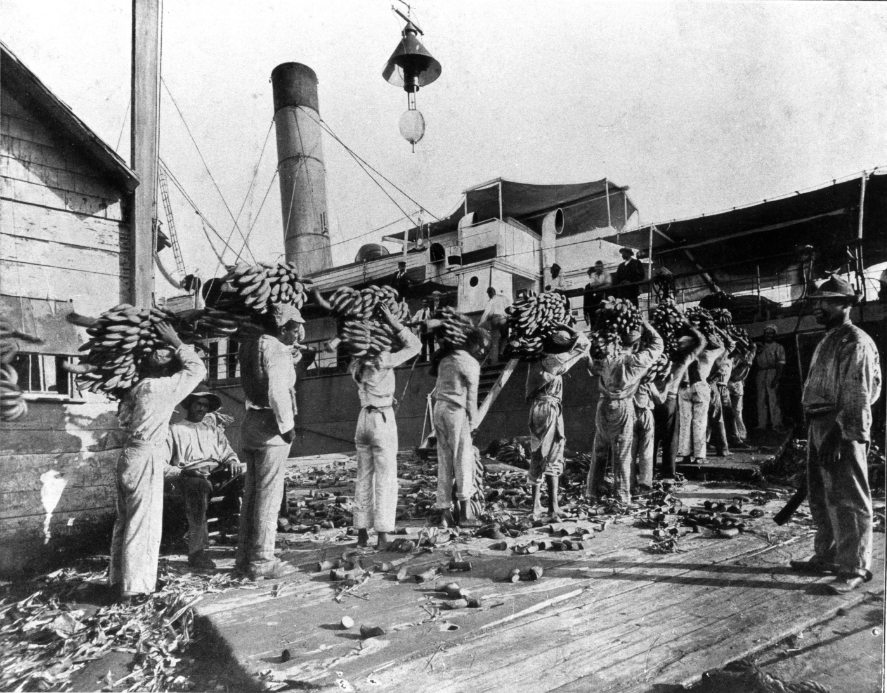

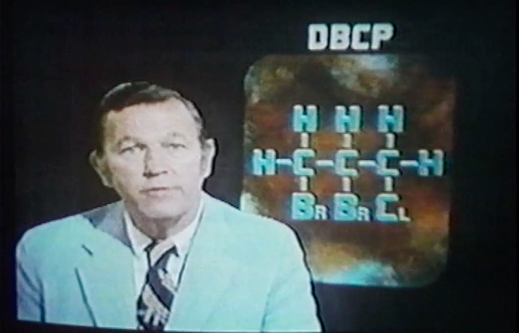
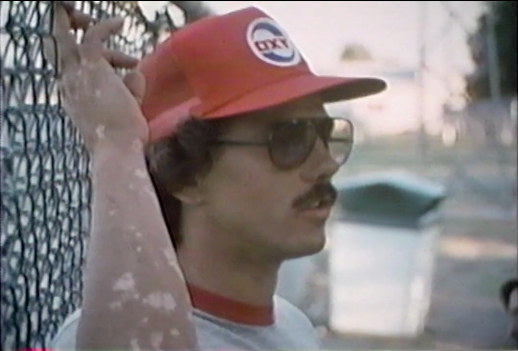
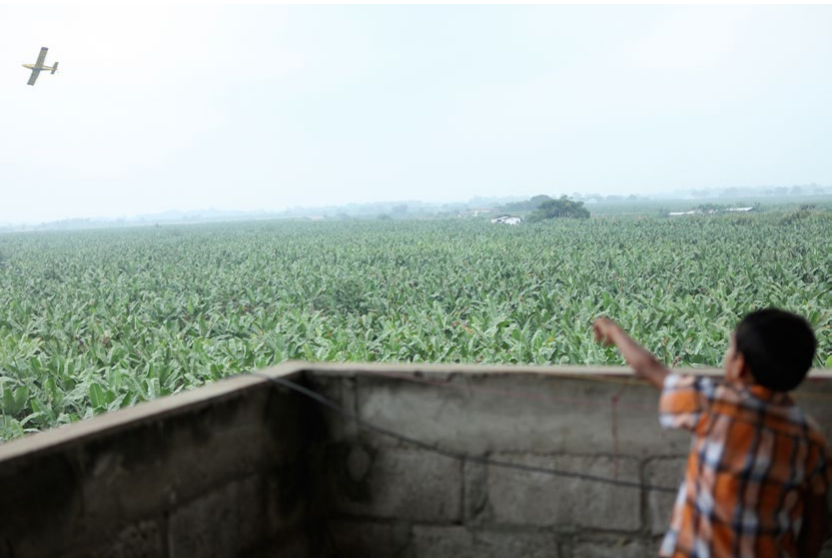
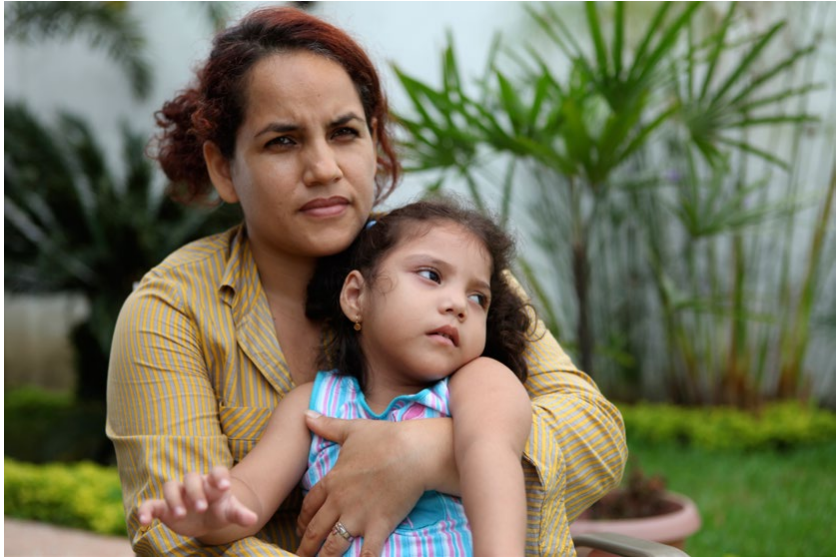
Leave a Reply